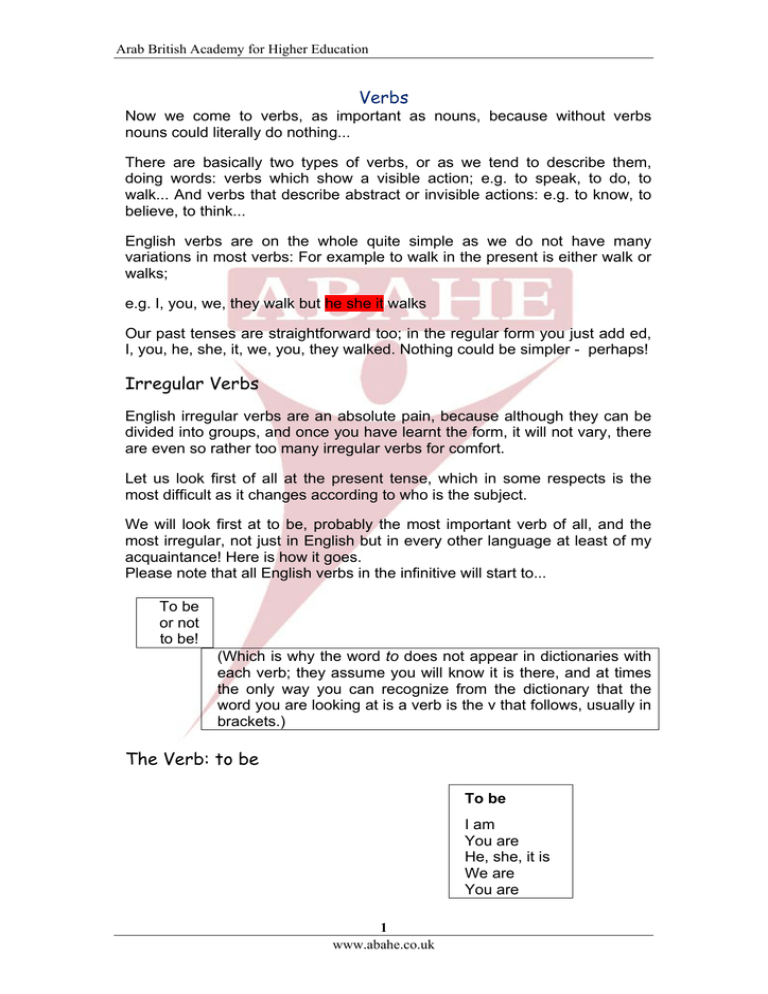
Arab British Academy for Higher Education
Verbs
Now we come to verbs, as important as nouns, because without verbs
nouns could literally do nothing...
There are basically two types of verbs, or as we tend to describe them,
doing words: verbs which show a visible action; e.g. to speak, to do, to
walk... And verbs that describe abstract or invisible actions: e.g. to know, to
believe, to think...
English verbs are on the whole quite simple as we do not have many
variations in most verbs: For example to walk in the present is either walk or
walks;
e.g. I, you, we, they walk but he she it walks
Our past tenses are straightforward too; in the regular form you just add ed,
I, you, he, she, it, we, you, they walked. Nothing could be simpler - perhaps!
Irregular Verbs
English irregular verbs are an absolute pain, because although they can be
divided into groups, and once you have learnt the form, it will not vary, there
are even so rather too many irregular verbs for comfort.
Let us look first of all at the present tense, which in some respects is the
most difficult as it changes according to who is the subject.
We will look first at to be, probably the most important verb of all, and the
most irregular, not just in English but in every other language at least of my
acquaintance! Here is how it goes.
Please note that all English verbs in the infinitive will start to...
To be
or not
to be!
(Which is why the word to does not appear in dictionaries with
each verb; they assume you will know it is there, and at times
the only way you can recognize from the dictionary that the
word you are looking at is a verb is the v that follows, usually in
brackets.)
The Verb: to be
To be
I am
You are
He, she, it is
We are
You are
1
www.abahe.co.uk
Arab British Academy for Higher Education
They are
If you look, you will see that this verb varies all the time, and the infinitive =
to be has no resemblance to the rest of the verb. You just have to learn it,
that is all!
The other very important verb is to have which is also very irregular; here is
how it goes:
I have
You have
He, she, it has
We have
You have
They have
The great difference between these two Verbs comes in the Past tense,
where to be as usual is different:
I was
You were
He, she,
was
We were
YOU were
They were
it
All Rights Reserved © Arab British Academy for Higher Education
2
www.abahe.co.uk







